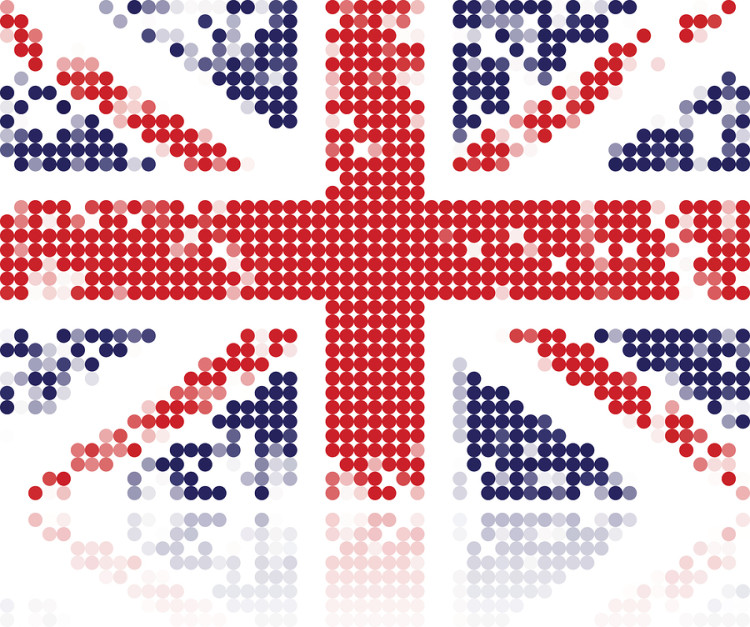The A to Z of Theresa May’s Brexit as Her Vision Speech Nears

On Tuesday, she is set to say even more as she delivers a speech on her vision for the breakup amid mounting pressure from lawmakers, investors and executives, both foreign and domestic, to flesh out her intentions. Her remarks will be closely watched by currency traders, after the pound plunged in response to two of her most significant Brexit commentaries.
The Sunday Times reported May will say she is prepared to quit Europe’s single market and customs union so the U.K. can control immigration, leave the jurisdiction of the European Court of Justice and strike trade pacts with other countries.
While May’s office declined to comment on the report, it said May would declare “the country is coming together” to deliver Brexit.
Six months after she took office and with less than 11 weeks before her own deadline for triggering negotiations with the EU, here are her most noteworthy quotes on the key Brexit issues.
Hard or Soft? Neither
It began July 11, with “ Brexit means Brexit – and we’re going to make a success of it” and it rapidly became her catchphrase.
May has doggedly refused to engage in the debate over whether it will be a “hard Brexit,” which prioritizes immigration controls, or “soft Brexit,” which safeguards trade.
In December, she said: “People talk about the sort of Brexit that there is going to be – is it hard or soft, is it grey or white. Actually we want a red, white and blue Brexit: that is the right Brexit for the U.K., the right deal for the U.K.”
And then, on Jan. 9: “I’m tempted to say that the people who are getting it wrong are those who print things saying ‘I am talking about a hard Brexit; it’s absolutely inevitable that it’s a hard Brexit.’ I don’t accept the terms hard and soft Brexit.”
The Single Market
The prime minister has refused to give a Yes or No answer on whether she wants to pull Britain out of the single market for goods and services. The 28 nations in the bloc are members of it, as are Norway, Iceland and Liechtenstein.
Nevertheless, she gave her clearest signal yet on Jan. 8 that withdrawal may be the chosen pathway when she told Sky News that “we mustn’t think about this as somehow ‘we’re coming out of membership, but we want to keep bits of membership.’ ”
A day later, after the pound fell in response to those remarks, she told reporters in London: “What we are doing is going to get an ambitious, good, best possible deal in terms of trading with and operating within the single European market.”
While ministers have said they are studying how other countries trade with the EU such as Canada and Turkey, May has said she wants a “bespoke” relationship. “We should be driven by what is in the best interests of the U.K. and what is going to work for the European Union, not by the models that already exist,” she said in July.
Customs Union
May told Parliament’s Liaison Committee in December that she doesn’t see membership of the customs union as a “binary decision.” It includes Turkey as well as the 28 EU members and sets no duties on fellow members and a common tariff regime on imports from elsewhere. As a member, though, Britain isn’t able to negotiate its own trade deals.
“There are a number of different aspects to the customs union, and there are a number of different relationships that already exist in relation to the customs union, so this is more complex than simply saying: ‘Are you in or are you out of the customs union?”’ she said.
May’s creation of a Department for International Trade and focus on forging new trade links post-Brexit suggests she may want to withdraw from the customs union. Her cabinet is split as leaving would mean more bureaucracy and duties for British companies exporting to the bloc.
Immigration
May has consistently signaled that the ability to control immigration is a red line in her negotiations. “Let me be clear: we are not leaving the European Union only to give up control of immigration again,” she told delegates at the Tory Party conference in October.
She hasn’t wavered on the issue, telling Sky News this month that she aims to end the freedom of movement of people from the EU to Britain, which is one of the core principles of membership of the bloc.
“The referendum vote was a vote for us to change that freedom of movement, was a vote for us to bring control into our immigration system for people coming from the European Union,” she said.
As for what system she may put in place, she has ruled out an Australian-style points system in which foreigners qualify for entry depending on skills and demand. “What the British people voted for on June 23 was to bring some control into the movement of people from the European Union to the U.K.,” May said in September. “A points-based system does not give you that control.”
“I want a system where the government is able to decide who comes into the country,” she said. “I think that’s what the British people want.”
European Courts
Regaining sovereignty from EU courts is another red line for May.
“We are not leaving only to return to the jurisdiction of the European Court of Justice,” May told the Tory party conference in October. “We are going to be a fully-independent, sovereign country, a country that is no longer part of a political union with supranational institutions that can override national parliaments and courts.”
She kept driving the point home.
“Our laws made not in Brussels but in Westminster,” she said. “Our judges sitting not in Luxembourg but in courts across the land. The authority of EU law in this country ended forever.”
She plans to introduce a bill this year to transfer all EU laws on to the British statute book with the intention of ensuring businesses have certainty about the future. Parliament will then be asked to repeal the laws it doesn’t care for.
Transition and Budget
May has signaled a transitional deal may be needed to bridge the gap between the day Britain leaves the EU and the beginning of a comprehensive post-divorce trade deal.
“Once we have the deal and the new arrangements, there will of course be a necessity for adjustment to those new arrangements, for implementation of some practical changes that may need to take place in relation to that,” she said in December. “That is what business has been commenting on and arguing for when, as you say, they use the phrase about not having a cliff edge. They don’t want to wake up one morning, having had a deal agreed the night before, and suddenly discover that they have to do everything in a different way.”
On budget contributions, she has refused to rule out continuing payments in return for market access. “What’s important is that when we leave the European Union, it’s the British government that decides how taxpayers’ money is spent,” May said last month.
EU Nationals
May says agreeing to guarantee the rights of EU citizens currently living in Britain is a priority for her, but is contingent on reciprocal guarantees for the rights of Britons residing in the other 27 member states. She raised the issue at the European Council in December.
“I made it clear to the other EU leaders that it remains my objective that we give reassurance early on in the negotiations to EU citizens living in the U.K. and U.K. citizens living in EU countries that their right to stay where they have made their homes will be protected by our withdrawal,” she told Parliament. “This is an issue that I would like to agree quickly, but that clearly requires the agreement of the rest of the EU.”
Parliamentary Involvement
May agreed last month to a demand from the opposition Labour Party that her plans should be subject to parliamentary scrutiny before she triggers Brexit. The Supreme Court may yet force her to hold a parliamentary vote on triggering Brexit, with a decision due this month, after May appealed a High Court ruling that she must do so.
When it comes to lawmakers having a chance to debate the final Brexit deal, the premier declined three times in testimony to the Liaison Committee to say whether she would give lawmakers a vote.
“It is my intention to ensure that Parliament has ample opportunity to comment on and discuss the aspects of the arrangements that we are putting in place,” she told the panel.
Defense and Security
May told the Conservative conference she wanted the separation agreement “to include cooperation on law enforcement and counter-terrorism work.”
Scotland and Northern Ireland
May said she’ll discuss with devolved administrations “how the arrangements will work where we have to take what is a framework currently set out in Brussels into the United Kingdom and recognize the different interests of the devolved administrations and the different devolution deals that are currently in place.”
As for Northern Ireland and whether there will need to be a border between it and the Republic of Ireland: “ A lot of work is being done as to how we can ensure that the arrangement for the movement of goods and people across that border is not a return to the hard borders of the past.”







No Comment